 If you’re at all familiar with Red & Yellow, you’ll know that future-proofing our students is an integral part of our approach. Moreover, you would have probably heard of our Uniquely Human Skills; 10 attributes that we’ve identified for career success for a world where machines are getting “smarter” every day. The good news? We all have them within us, we just need to make a point of practising and developing them.
If you’re at all familiar with Red & Yellow, you’ll know that future-proofing our students is an integral part of our approach. Moreover, you would have probably heard of our Uniquely Human Skills; 10 attributes that we’ve identified for career success for a world where machines are getting “smarter” every day. The good news? We all have them within us, we just need to make a point of practising and developing them.
Since the beginning of the year, we’ve been sharing them with you, unpacking them in different ways, starting with creative thinking, ending with mindfulness a couple of weeks ago. Here’s our 2019 round-up of our 10 Uniquely Human Skills. Don’t worry, we’ve got a lot more content coming for you in 2020.
Need a more detailed introduction to our Uniquely Human Skills? Start with “RISE OF THE MACHINE …. and the critical need for uniquely human skills”
- Creative thinking — The competitive advantage of creative thinking
“Creative thinking is essential for non-routine cognitive applications. In business, it’s called innovation. Cliched terms like “thinking out of the box” come to mind, but essentially that’s what it is. It’s the ability and practice of looking at problems from varying perspectives, to see beyond the predictable and discover fresh possibilities and new opportunities. As humans, it is something we are all capable of, we can learn it, we can practice it – creativity is quintessentially human. With creative thinking, we can solve problems and create solutions that machines cannot.” - Critical thinking — our edge against the machines
“In a future where robots and AI will be the new ‘normal’, critical thinking is a skill that will help set humans apart from their artificial counterparts. Mainstream education is still not putting enough emphasis on the importance of developing these skills, as Brian Oshiro, Academic Director of EIC Academy, highlights in his TEDx talk, and why it’s imperative that education encourages and facilitates critical thinking.” - Leadership — What makes a good leader? 4 practical steps to help you lead happier teams
“Myriad books, articles and blog posts have been written on the principles leaders should know, many of these have been extremely helpful in my own life and career but in this article, I’d like to focus on 4 practical things that have helped my own leadership and, in particular, my leadership decision making.” - Adaptability — “Adapt or die” – Don’t become the next Kodak
“A certain innovation or invention can disrupt and transform deeply entrenched systems almost overnight. For example, the telephone, steam engine and email all caught on very quickly, effectively altering life as it was, forever. But whether change happens gradually or rapidly, it’s vital that we adapt to what the change brings. With ceaseless advancements in technology and science, a future dominated by AI and filled with promises of redundancy, it has never been more critical to be adaptable.” - Persuasion — Become more persuasive
“Persuasion is colloquially known as an art form because it requires creativity, it’s nuanced, it inspires and incites different understandings and interpretations. Put simply, persuasion is the process of presenting opinions or arguments in order to shift an audiences’ thinking.” - Conflict Resolution — Conflict resolution made simple
“Conflict is inevitable! People have different opinions. But it’s natural to use conversation to try and convince others that our opinion is correct and theirs is wrong. These conversations can start polite and respectful, but end badly; with disagreement, negative emotions, the effects of which can drag on way beyond the conversation itself.” - Social Intelligence — Social intelligence is more important than ever
“Donald Trump provides the quintessential example of a lack of social intelligence. He takes to Twitter to voice his frustrations or insult anyone, from celebrities to politicians, sometimes even his own team. This doesn’t align with our understanding of “presidential”. These acts can instantly turn public opinion. The President of the United States essentially represents the brand of America. The expectation is that people, particularly those in positions of power, consider their actions and practice social intelligence, even if it’s just 280 characters.” - Negotiation — What’s missing from Brexit? Competent negotiation skills
“Negotiation sounds hectic, something enormous like trying to get a deal for Brexit or brokering a large deal worth millions of rands or FBI agents dealing with hostage situations. But, in truth, negotiation happens every day, even if they don’t fall into the headline-making category. How we negotiate determines an assortment of important (and insignificant) outcomes in our lives. “ - Empathy — The business of being empathetic
“We’re missing a trick; while we search for ways to boost profits, generate different sources of revenue and reach new audiences, we underestimate the significance of empathy. The ability to understand and experience the feelings of another is the competitive edge that many businesses, leaders and organisations are lacking.” - Mindfulness — How the pieces of ‘me’, ‘we’ and ‘world’ fit together
Effective leadership is priceless, particularly in our digital world. Leaders fear failure, just like the rest of us. But Dorrian Aiken trains leaders to be successful, by rallying people together and using mindfulness, empathy and encouragement to teach them to think differently. Discover how science has provided hard evidence that this is not an optional “soft” skill, but an essential life and business practice.
Stay tuned for some more Uniquely Human Skills content in 2020! But don’t wait until then to future-proof yourself, check out our full online courses offering.


 If you’re at all familiar with Red & Yellow, you’ll know that future-proofing our students is an integral part of our approach. Moreover, you would have probably heard of our Uniquely Human Skills; 10 attributes that we’ve identified for career success for a world where machines are getting “smarter” every day. The good news? We all have them within us, we just need to make a point of practising and developing them.
If you’re at all familiar with Red & Yellow, you’ll know that future-proofing our students is an integral part of our approach. Moreover, you would have probably heard of our Uniquely Human Skills; 10 attributes that we’ve identified for career success for a world where machines are getting “smarter” every day. The good news? We all have them within us, we just need to make a point of practising and developing them.